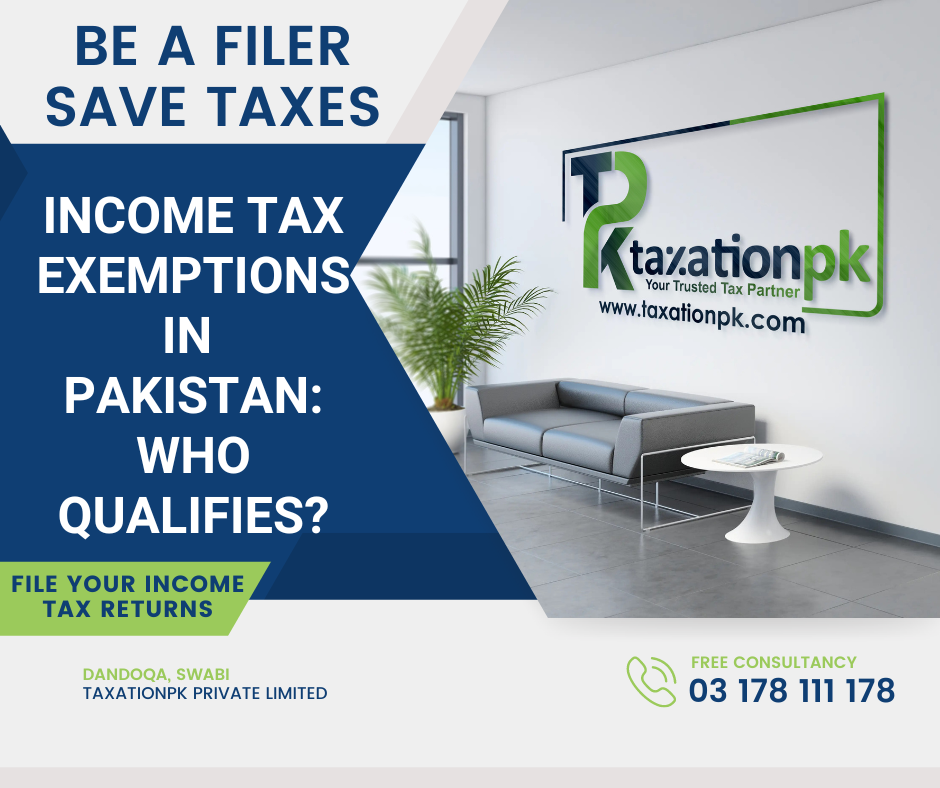The Income Tax Ordinance, 2001 (ITO 2001) outlines various scenarios where individuals or entities might be exempt from paying income tax in Pakistan. This article explores some key exemptions:
Diplomatic and International Organizations:
- Diplomats and UN Officials: Income earned by individuals with diplomatic privileges under the Diplomatic and Consular Privileges Act, 1972 (IX of 1972) or the United Nations (Privileges and Immunities) Act, 1948 (XX of 1948) is exempt to the extent allowed by those Acts.
- Pensions from UN/Specialized Agencies: Pensions received by Pakistani citizens who previously worked for the UN or its agencies (including the International Court of Justice) are exempt, provided their UN salary was also tax-exempt in Pakistan.
Foreign Government Employees:
- Salary Exemption with Reciprocity: Salaries of foreign government employees working in Pakistan are exempt if:
- They are not Pakistani citizens.
- Their services are similar to those performed by Pakistani government employees abroad.
- Their home country offers similar tax exemptions to Pakistani government employees in that country.
International Agreements and Aid Programs:
- Tax Treaties: Income sourced from Pakistan that the country cannot tax due to a tax treaty is exempt under the ITO 2001.
- Aid Agreements: Salaries of non-Pakistani individuals may be exempt under specific provisions of Aid Agreements between the Pakistani government and foreign governments or international organizations.
- Official Development Assistance: In specific cases, the federal government may exempt income related to official development loans and grants through a notification in the official gazette.
Presidential Awards and Honors:
- Allowances and Awards: Allowances associated with any honor, award, or medal bestowed by the President of Pakistan are exempt from income tax.
- Monetary Awards: Monetary awards granted by the President are also exempt from income tax.







